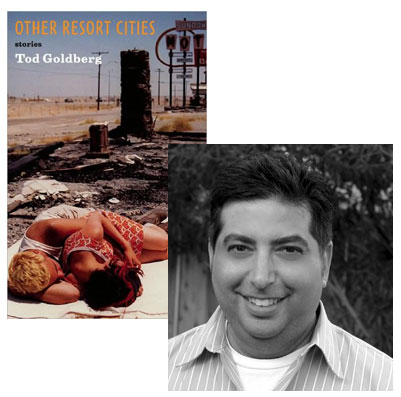Watch This: Sita Sings the Blues

Way back in February, at the O’Reilly Tools for Change conference, I saw a great presentation by Nina Paley about her feature-length animated film Sita Sings the Blues and her decision to produce it under a Creative Commons Attribution-Share Alike License, which basically means that anybody can “copy, share, publish, archive, show, sell, broadcast, or remix” the film as they wish, as long as they don’t try to pass it off as their own work. She still intended to make money from the film, of course, by selling DVDs and spin-off merchandise, and by booking the film into theaters. Which brings me to the main point: The IFC Center in the West Village has Sita Sings the Blues from Christmas Day to New Year’s Eve, and Paley herself will be at the 8:25 p.m. screening most nights to take questions from the audience.
Paley uses something like a half dozen distinct visual styles to tell the mythic story of Sita’s devotion to her husband, Rama, despite his rather dickish treatment of her, with autobiographical fragments from the break-up of her own marriage interspersed. Furthermore, instead of a straight narrative perspective, there’s sideline commentary from three shadow puppets and stunning musical numbers that combine Indian typology, Merrie Melodies-style animation, and the songs of Annette Hanshaw. (Those songs were the main reason the film had trouble finding distribution, as the cost of licensing the recordings for wide theatrical release would be prohibitive.) The result is… well, look, a lot of people try to create a visual poetics of cinema, but Nina Paley succeeds.
25 December 2009 | watch this |
Tod Goldberg Revisits Rock Springs

Tod Goldberg is one of the finest literary mimics I know of; I swear, you read The End Game, one of his tie-in novels for the television series Burn Notice, and it’s like you’re hearing the lead character’s voice-over narration in your head. Mind you, I’m slightly biased: Tod’s a friend who’s shown up around these parts before, and I’ve spoken on panels he’s moderated. Despite the fact that I’m blatantly in the tank for Tod, though, you can trust me when I tell you his new short story collection, Other Resort Cities, is fantastic—you know what, you don’t even have to trust me, just go to Five Chapters and read “Rainmaker,” which is the last story in the collection, and you’ll see what I’m talking about, and then you’ll want to read “Mitzvah” and “Wills” and “Living Room” (the last of which is one of the niftiest of its kind since “The Swimmer”). Meanwhile, Tod’s going to tell you about the short story that set him on the path of writing about desperate people who’ve got some surprising moves left in them.
I’m of the general opinion that once you’re open to exploring new things, inevitably something will come along that you believe has fundamentally altered your life. I think this is true if you’re a fry cook and someone gives you a great new cooking oil, or if you’re a baseball player and someone tells you about how great human growth hormone is, or if you’re an aspiring writer—like I was once, before I became a cynical, angst-filled professional writer—and someone you trust realizes you’re reading (and writing) the wrong kind of stuff and introduces you to a work that just might be of interest to you. Maybe it doesn’t even matter what that work is exactly, only that it’s a work that person thinks you’ll respond to on some emotional level. If you’re open to being changed by a particular experience, odds are you’re going to be changed in one way or the other.
In my case specifically, that story was Richard Ford’s “Rock Springs”. To be accurate, though, I suppose it was the whole collection Rock Springs that caused me to wake up as a writer, but because “Rock Springs” is the first story in the collection—and I’d argue the best story Ford has written—the story served as my entry drug into a new way of thinking about writing and storytelling. The book was given to me by my Cal State Northridge writing professor Jack Lopez with the admonition that I stop writing until I finished the book.
That part was easy as he gave it to me over Christmas break in 1992 and I was a 21 year-old living in a fraternity house, which meant I was unlikely to write anything apart from beer-piss Greek letters on alley walls. But at the moment in my life I was ready to be changed, irrespective of the frat boy thing, because I was frankly tired of being a fuck up, of writing crap that my drinking-age ego wouldn’t allow me to admit was crap, but which professors like Jack kept telling me I could improve on if I just cared a little. Just a little.
So one night, after the beer ran out, I found myself with nothing better to do than read a book my professor thought might, you know, change my life. Thirty minutes later, I realized I’d been doing it all wrong.
It being writing.
It being reading.
It being understanding what it meant to be a writer vs. a person who writes.
23 December 2009 | selling shorts |

 Our Endless and Proper Work is my new book with Belt Publishing about starting (and sticking to) a productive writing practice.
Our Endless and Proper Work is my new book with Belt Publishing about starting (and sticking to) a productive writing practice. 
